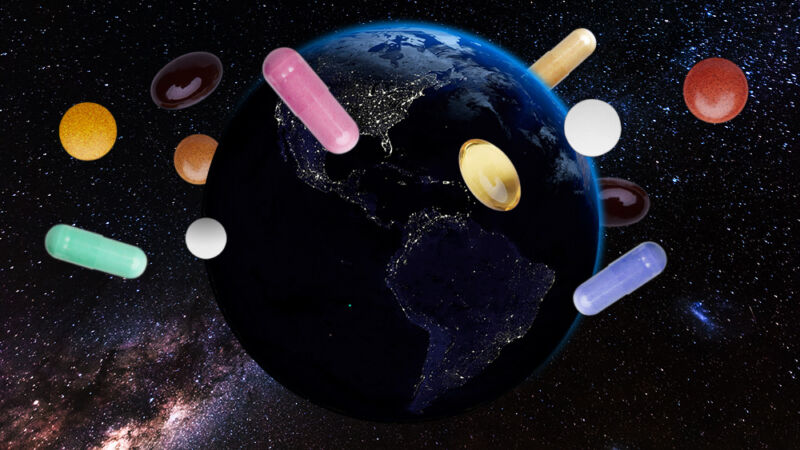Vicodin, ketamine, and caffeine: The ingredients of a good space pharmacy

Enlarge (credit: Aurich Lawson / Getty)
In space, no one can hear you sneeze. But if an astronaut does catch the flu, it can be a major problem. With the nearest Walgreens several hundred kilometers away, every medication an astronaut could possibly need on a space mission must be packed beforehand. It makes designing a pharmacy for space extremely complicated.
On top of that, of course, space itself poses potential medical issues. That extreme environment is known to warp the human body, shift fluids, and shrink bones, among other things. But microgravity can also affect how medications are metabolized, potentially making drugs less effective or even toxic.
Yet, despite 60 years of humanity sending individuals to space, there has been alarmingly little research into how meds work differently off-planet. While self-medicating in space has been common, there aren't great records of who took what, when they took it, and how it did or didn't help. There is some evidence that certain meds can be less potent in space and radiation may even degrade medications-but really, experts just aren't sure.
Read 43 remaining paragraphs | Comments